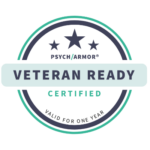Not every person who consumes alcohol regularly has an alcohol use disorder (AUD). Still, for those who have been diagnosed with AUD or who have an unhealthy relationship with alcohol, nine different things that can be done to help stop the consumption of alcohol.
See how you can use these tips to cut or quit drinking. Quitting alcohol comes with many health benefits, and there are many ways for people to enjoy socializing and a positive lifestyle without alcoholic consumption. Read on to learn more.
Identification of Triggers
Sometimes, deciding to quit drinking alcohol can be the easiest part of the process, and follow-through is the most difficult. It is common to have alcohol cravings and the urge to drink. These tend to occur more frequently early in recovery, however, they can pop up at any time.
One way to combat these cravings is to identify triggers. The National Institutes of Health have identified two types of triggers: external and internal. An external trigger can be something like the smell of alcohol, friends you used to hang out with while drinking, or driving past a favorite bar. An internal trigger can be an emotion that would usually be addressed with alcohol consumption but now requires a different coping skill.
Identification of triggers should be addressed when trying to stop alcohol consumption. It allows a person to start making changes in their environment to help reduce alcohol urges and cravings. So, identify what makes you think about or crave drinking and try to minimize your exposure to it, if possible.
Support Groups
Most, if not all, individuals have probably heard of Alcoholics Anonymous (AA) at some point in their lives. Since its inception in 1939, the famous text called the Big Book has been translated into 70 different languages, and as of 2020, AA reports to have 2.1 million members. This number, however, can be challenging to verify, as the only requirement for membership is an honest desire to stop drinking alcohol.
Support groups have been shown time and time again to be an incredibly powerful tool to help people who are trying to quit drinking and achieve long-term sobriety. Almost every city in the US will have at least one AA meeting a week. A quick internet search can give you the details on how and where to find one.
There is a large online presence for recovery as well. In the rooms is a wonderful resource that allows people to connect virtually while SMART Recovery is another support group that can help you focus on alternative strategies for managing life and producing the life you want for yourself.
Supportive People
When you decide to stop consuming alcohol, it can mean a massive lifestyle change if you have been involved with people who spent a large amount of time engaging in activities that involve alcohol.
For some people, this lifestyle change might mean a complete shift in their friendship circles. This can be a difficult process, especially when you are going through a time when support is needed. This is where support groups can be useful in helping you find healthy, supportive people and the opportunity to engage in alcohol-free activities.
When looking for supportive people, it is also important to look at family members. Sometimes families can be complicated. There might be family members who are completely supportive of your decision to stop drinking and will consciously try to do the right thing to support recovery.
Others might not only disagree with the decision but might have been participants in prior drinking activities. If you are part of a family system in which alcohol is widely and frequently used, it might be appropriate to seek an outside support group. You can start by looking at nearby alcohol rehab centers and addiction treatment centers in your area.
Spending Time
Until the decision is made to stop drinking, most people with AUD, substance use disorders, or unhealthy drinking behaviors may not realize that they can dedicate a significant amount of their time to thinking about, obtaining, and consuming alcohol.
When you decide to quit drinking, you may find that there are many hours in the day in which you don’t know what to do with yourself. This can become problematic; with nothing else to do, your thoughts might turn towards drinking or alcohol-related routines you might have developed before entering recovery.
Planning ahead can be very helpful for someone new to sobriety. Deciding beforehand how the day is going to be spent can eliminate a lot of temptation. Often, people will utilize their support groups to find different activities to get involved in that do not include alcohol. There is nothing wrong with having a list of supportive people handy who can be called during times of temptation.
Withdrawal
One thing that should be mentioned and be taken with all seriousness is withdrawal symptoms that can occur when alcohol consumption stops. A light drinker might be able to stop without feeling any effects of withdrawal. A moderate to heavy drinker might exhibit some withdrawal symptoms that could be unpleasant such as:
- Shakes
- Nausea
- Tremors
- Anxiety
A severe drinker will need the assistance of a detox facility to treat alcohol withdrawal symptoms that can cause seizures that introduce fatal complications. A person in this category has gone from alcohol use to abuse to alcohol dependence. This means the body is now dependent upon alcohol to function.
If you find yourself in this situation, consult a treatment facility so your medical and mental health can be reviewed by professionals who can assist you with creating a personalized plan for the detoxification process.
Stopping drinking can be a highly positive life-altering decision, but please use caution when deciding how to best treat the symptoms of withdrawal. Depending on the severity of alcohol usage, withdrawal symptoms can last anywhere from hours to weeks.
Seeking Treatment
While some people might be able to stop drinking with little to no emotional consequences, there are others who can benefit from mental health treatment when making the decision to stop drinking.
Sometimes, going to treatment can help you discover underlying mental illness that contributed to alcohol use and maybe even resulted in alcohol addiction as a self medication technique. This might be from either a chemical imbalance within the brain, environmental factors, or some combination of both. Either way, a medical reviewer and mental health specialist can help you navigate the emotional complexities that can arise with a mental health diagnosis.
In addition to underlying mental health diagnoses, people will use alcohol to drown out unpleasant feelings. While this might seem to work in the short term, in reality, it creates a deficit in the ability to manage feelings themselves, turning into a vicious cycle that evidence-based intervention can help break.
Education
One of the most powerful tools in the cessation of drinking can be education. Ethyl alcohol is a toxic substance for the body. It damages cells, increases inflammation, and, if used enough, can cause long-term brain damage. If you are involved in frequent binge drinking episodes, damage can occur even faster. When used in excess, alcohol can also damage families, ruin job prospects, and place your life security at risk.
Some people may find that educating themselves about the effects of alcohol can be rewarding and eye-opening. Depending on the person, knowing the risks involved in the overconsumption of alcohol can be a good motivator to stay strong in times of urges and cravings.
Internet research can be a good place to start if you want to know the long-term negative effects of alcohol. Depending on your community, there might also be classes available that discuss this topic through community centers, treatment facilities, or other entities. There, you’ll also learn about all the types of addiction or alcohol treatment available.
Getting Involved
Many people find getting more involved in their community is a positive way to help with quitting drinking. Some may decide to volunteer at a local soup kitchen, while others may decide to volunteer at a local animal shelter or elsewhere. This is usually attributed to the responsibility that comes with community involvement.
If you know there are people waiting on you to give them food, hand out blankets, or be a guest speaker at a community event—the motivation to meet these needs is usually high. People usually will think twice about indulging an urge or a craving if they know people are depending on them within the community.
Many individuals in long-term sobriety often give back to the community. Some view this as making amends to those that they have wronged in the past. Others look at it as a way to give back to the community that helped them when they were struggling. Some even go on to complete education and even earn advanced degrees so they can work in the addiction field to help others.
Don’t Give Up.
Deciding to stop drinking should not be taken lightly, and it can be very difficult. If it was easy, very few people would find themselves struggling with alcohol, but it remains a massive issue in the United States and globally.
If you find yourself struggling to remain sober, know that this is part of the process. It may take multiple attempts before success is achieved. Relapse is part of the addiction cycle. When asked, people in recovery will tell you that in each relapse they learned something about themselves. Stay vigilant, and incorporate what you learned in your relapse into your recovery. It does not matter how many tries it takes. You are worthy of a good life, and you are worthy of fighting for it. Do not be afraid to reach out for support if you find yourself struggling.
Get Custom, Proven Treatment from The Haven
If you have decided that now is the time to look into treatment options, The Haven offers comprehensive treatment for those struggling with alcohol abuse. In addition to medically-supervised detox, we offer different therapies and aftercare services to help support a successful recovery. Contact us today for more information.






